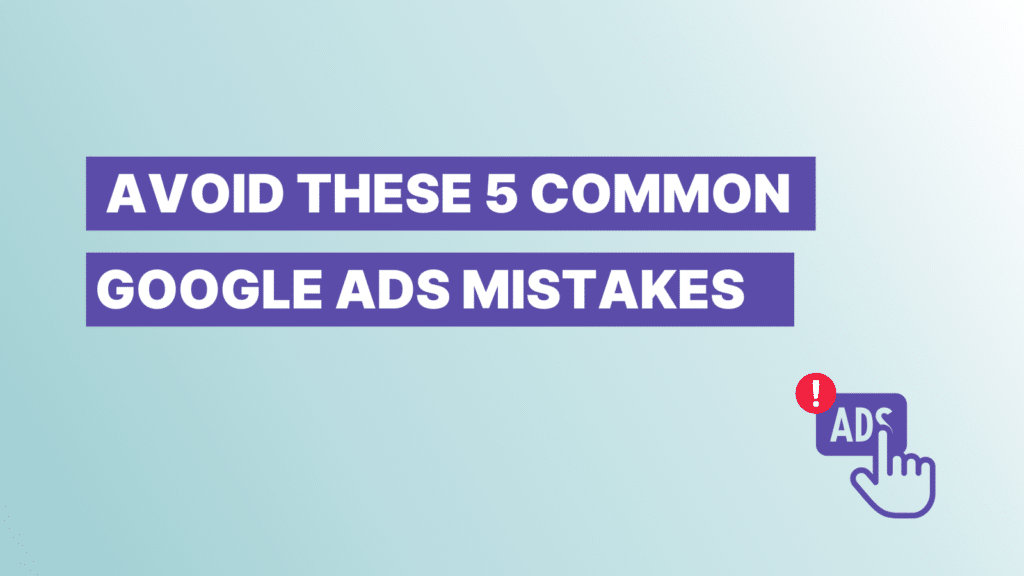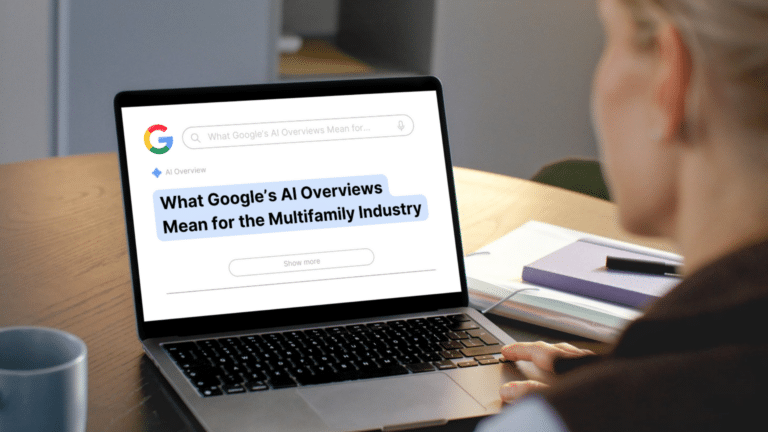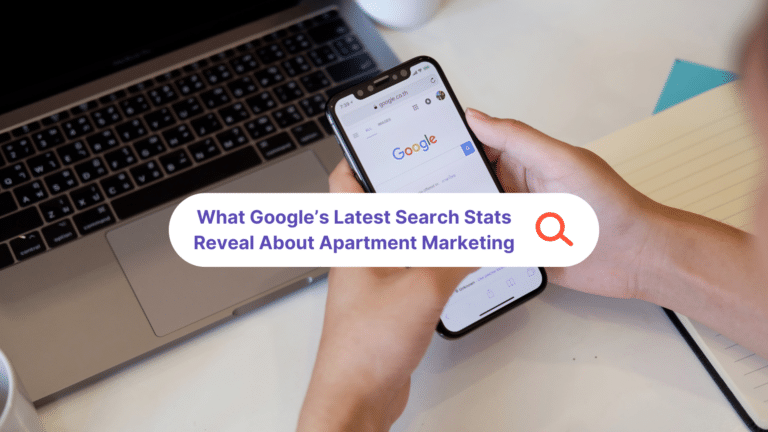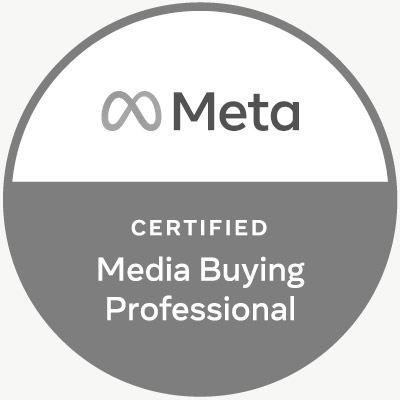In this series, Respage CEO Ellen Thompson discusses the latest trends in the multifamily industry and how apartment communities can generate greater results.
I’ve been using Google Ads for over 20 years to generate apartment leads for my clients. For two decades it has proven itself to be a powerful tool for apartment owners looking to generate leads and fill vacancies quickly. With the ability to reach potential renters at the exact moment they’re searching for a new apartment home, Google Ads is a great way to increase awareness of your community after a quick setup (seriously quick—we can get you set up in just a few days).
While Google boasts what it calls a “user-friendly interface”, setting up and managing a campaign isn’t as simple as they make it sound—leaving a lot of room for error. It’s easy for campaigns to burn through your budget and fall short of their potential due to mistakes that are all too common.
Google Ads can be one of your most effective apartment marketing tools, but it can also derail your success if not managed properly.
Let’s explore how to make the most out of Google Ads, the common mistakes you should avoid, and what questions you should ask your paid advertising provider to make sure you are set up for success.
Why you should be using Google Ads for apartment leads
Google Ads are popular because they are one of the quickest ways to generate more leads for a community that needs them fast. Some of their benefits include:
- Instant visibility: Google Ads allows you to appear at the top of search results, in YouTube, Google Maps, or throughout the web almost immediately, ensuring your community will be in front of people actively looking to rent.
- Precise targeting: With tools that let you target people looking to rent in particular locations, you can focus your advertising spending and put your ads in front of people who are actively looking to rent in locations you know people move from.
- Flexible budgets: Google lets you set any budget you like and turn it up, down, or off. Whether you’re a small property manager or a large multi-family operator, you can afford Google Ads with smart budgeting. Google offers you more flexibility to respond to economic shifts and occupancy rates by adjusting your spending based on your needs. This approach helps properties save money and target more qualified prospects compared to an ILS that requires an annual contract and offers fewer customization options.
- Measurable Results: Google Ads provides the detailed analytics you need to measure the leads, tours, and applications you are generating from your campaigns which lets you measure success and helps your Google Ads manager optimize them for better performance.
Even with all of these benefits within reach, setup issues and mismanaged campaigns often prevent apartment owners and operators from reaching the full potential of Google Ads. Let’s look at the most common mistakes to avoid to get the most your apartment Google Ads campaigns.
Avoid these common Google Ads setup & management mistakes
1. Limiting Google Ads to search campaigns only
If your campaign manager hasn’t evolved your campaign structure beyond basic search and remarketing campaigns, you aren’t taking advantage of strategies that will likely generate more leads at a lower cost. While search ads are still an integral part of many campaigns, limiting your campaigns to this format means you’re missing opportunities to engage potential renters with different Google Ads offerings which generally give you more exposure at a lower cost per click.
The average cost per click for Google Search campaigns was up over 50% in 2024 in some markets. But with improvements in AI, it’s now possible to effectively target people who are looking for apartments across all of Google’s inventory which gets you out of the expensive “rat race” of competing to appear in the top four search spots.
Solution: Test other campaign types like Display and Performance Max. These formats allow you to target people looking for apartments who are currently in a specific location across the entire Google network, including YouTube, Gmail, Google Maps, and the Display network which shows your ads on websites and apps.
2. Mismanaged audience targeting
Audience targeting is crucial, but it’s often mishandled by casting too wide a net, which can quickly burn through your ad budget without getting qualified results. Some targeted audiences may sound right, such as “real estate”, but unfortunately this audience is too broad for multifamily campaigns because it targets homebuyers in addition to renters. Worse yet, I’ve seen some campaigns target irrelevant general interests like “social media” or “executives” without combining these with rental intent.
Solution: Use custom audiences when you want to target people who are at the intersection of two interests, i.e. prospects who are in the market for an apartment, and work in financial services. If you simply add audiences one at a time to your campaign, Google will assume you are looking for people who meet either, not all, criteria.
Pro tip: Utilize Google’s built-in in-market audiences that target renters, for example “Apartments for Rent.”
3. Ignoring negative keywords
Failure to manage negative keywords can result in wasted spend on unqualified clicks. Google’s interpretation of related search terms has gotten a lot broader. A prospect’s search for “nyc apartment lottery” can match with your keyword “nyc apartment.” Unless you are advertising affordable housing, adding lottery as a negative keyword on your account (not the campaign or ad group) can prevent your ad from appearing in unqualified searches.
Solution: Regularly review your search terms report and add negative keywords for irrelevant queries.
Examples of negative keywords: You can add negative keywords for competing apartment community names, searches for apartments in neighborhoods that are not close or demographically similar, or unit types you don’t offer.
Pro tip: Be sure to understand local Fair Housing rules about income before adding negative keywords like “section 8” or “income based apartment.”
4. Padding results with brand searches
Some managers artificially inflate results by not excluding brand-related searches, which in the case of apartment advertising means searches for your apartment community’s name. While brand searches often have high conversion rates, sometimes they include conversions from residents, not prospects. In most cases, this isn’t helping you get more leads as these users likely would have found your site without paying in the organic search results, Google Maps or your Google Business Profile.
Solution: Exclude brand keywords from your Google Ads campaigns. However, there are a few exceptions. If you’re in a lease up and your website doesn’t yet appear at the top for searches for your community name or you are in a market where you are paying third parties finders fees, it’s OK to run a branded campaign. Be sure to put it in a separate campaign so you understand what percentage of your conversions are coming from non-branded searches v. branded searches.
5. Unqualified campaign managers
It’s vitally important that someone qualified is running your Google Ads campaign. It’s difficult to find qualified Google Ads managers and as a result, we’ve seen companies make compromises with hiring. If your campaign is being managed by a freelancer or outsourced team, you will likely have quality control issues and it’s less likely they are Fair Housing trained.
Solution: Ask tough questions about who is running your campaigns:
- Are they in-house and on the payroll, or are they a freelancer or working for an outsourced firm?
- How much experience do they have with apartment marketing?
- Are they Fair Housing trained?
Maximize your Google Ads ROI by avoiding common pitfalls
Google Ads is a highly effective tool for apartment owners to drive leads and fill vacancies quickly. However, it’s also easy to waste money with outdated tactics or poorly managed campaigns. By diversifying campaign types, refining audience targeting, managing negative keywords, and ensuring you have someone qualified overseeing your campaign, you can maximize your ROI and stay ahead in a competitive market.
Take the time to understand how your campaigns are set up and audit results regularly. Don’t hesitate to bring in experts to do an account review if something doesn’t feel right.
Why it’s important to find a multifamily advertising expert to manage Google Ads
Managing Google Ads campaigns for multifamily properties requires a deep understanding of apartment marketing, audience targeting, and Fair Housing compliance. A skilled professional ensures your campaigns are set up correctly, optimized for success, and compliant with industry regulations.
Partnering with a multifamily advertising expert can save you time, reduce wasted spend, and generate more qualified leads, ultimately delivering a stronger ROI for your marketing budget. Reach out today for a free review of your Google Ads campaigns and see how we can help you achieve better results.

From the desk of Ellen Thompson, Co-founder and CEO of Respage >> Since its founding, Respage has helped over 10,000 communities attract, engage, and retain residents. Its platform assists properties in generating leads, automating leasing, and managing reputation and social media. Thompson is also the Founder of Results Repeat, a digital marketing agency that has helped hundreds of companies create a digital presence and use SEO and paid marketing to generate more business online.






